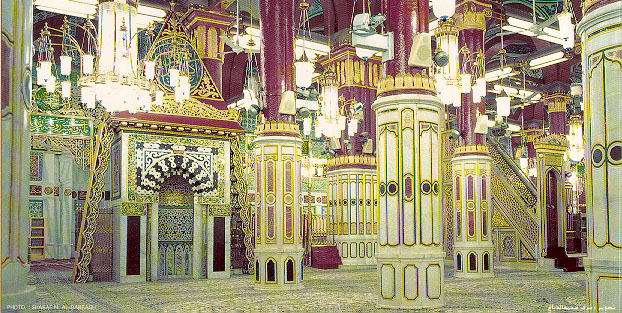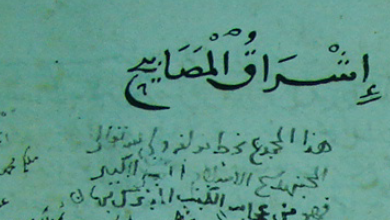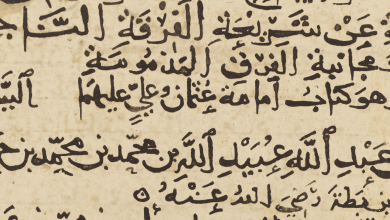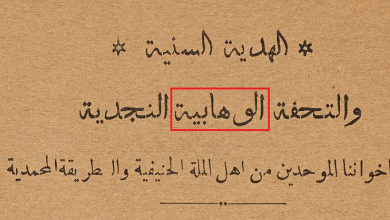Al-Laknawi on criticism of Imam Abu Hanifa
Here is translation of a section from the introduction of Shaykh Abdul Hayy al-Laknawi’s (d. 1304 AH) Ta’liq al-Mumajjad ‘ala Muwatta Muhammad:
“It is established in the principles [of the science of hadith] that obscure criticism is not acceptable, especially when it is about someone the acceptance of whose testimony is firmly established, the pronouncement of him as someone whose testimony is accepted having been fully explained and whose imamate is established. I have expanded on this issue in my treatise al-Kalam al-Mabrur wa’s-sa’y al-mashkur ‘ala raghmi anfi man khalafa as-sahih wa’l-jamhur. Some of the criticism came from his contemporaries and it has been established that the criticism of the contemporaries are not accepted about each other, particularly if they derive from party spirit or personal animosity. If that were not the case, then Ibn Ma’in’s criticism of ash-Shafi’i would be acceptable, and Ahmad’s of al-Harith al-Muhasibi, al-Harith’s of Ahmad, Malik’s of Ibn Ishaq the person of the hadith of two qullahs, and of the recitation behind the imam, and things that other people said about others. Certainly not! By Allah we do not accept their words about them and we pay them their portion in full. Some of the criticisms stemmed from later people who were partisan such as ad-Daraqutni, Ibn ‘Adi and others, about whom the evidence is clear that in this criticism they are aberrant. No one is free from partisanship except for those whom the Creator of strength and power protects. It is established that the like of that is not acceptable from whoever says it, and indeed it is itself the cause of critical mark being laid against the person himself. Shaykh al-Islam Badr ad-Din Mahmud al-‘Ayni told the truth when he said in his research on Surat al-Fatihah in al-Binayah sharh al-Hidayah concerning ad-Daraqutni, “How does he manage to attribute weakness to Abu Hanifah? He himself is deserving of being called weak because he narrated in his Musnad hadith which have serious flaws, are defective, rejected, unusual and fabricated.” When he wrote his research on renting land and dwellings in Makkah he said, “As for what Ibn al-Qattan said, The cause of his ascription of weakness to Abu Hanifah was his own bad manners and lack of modesty with respect to him, because Imam ath-Thawri and Ibn al-Mubarak and their likes regarded Abu Hanifah as trustworthy and praised him. So what is the status of someone who ascribes weakness to him in comparison to these great men?” There are some people who are extreme in criticizing narrators, criticizing them without care or consideration, and designation as fabricated hadith which are not fabricated. Included among them is Ibn al-Jawzi, as-Saghani, al-Juzaqani, al-Majd al-Fayruzabadi, Ibn Taymiyyah al-Harrani of Damascus, Abu’l-Hasan ibn al-Qattan and others as I have explained at length in al-Kalam al-mubram and al-Ajwibah al-fadilah. Only someone who is negligent and unaware of their positions runs to accept their statements without verifying them. Some of them, such as Ibn ‘Adi in his Kamil and adh-Dhahabi in his Mizan have the habit in their compilations of mentioning everything that has been said about the man without distinguishing what is acceptable and what is ignored. Beware! and then again beware! of criticizing anyone simply because of their statements, without weighing them against the criticism of others, all of which I have mentioned in as-Sa’y al-mashkur fi radd al-madhhab al-ma’thur. Some criticisms are not established by narrations which are well regarded, such as narrations of al-Khatib in criticism of him, and most of those who come after him rely upon his narrations which are rejected and are themselves subject to serious criticism.
See, The Muwatta of Imam Muhammad, trans. by Mohammad Abdurrahman and Abdassaamad Clarke, (Karachi: Darul Ishat. 2005) Intro. pp.38-39






